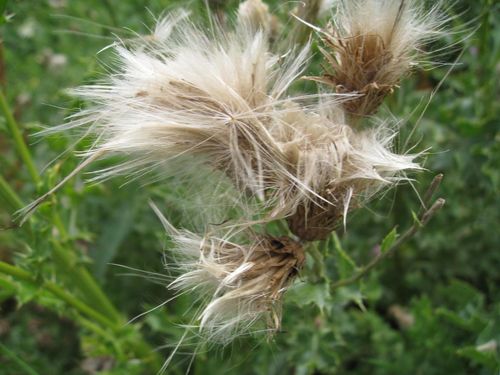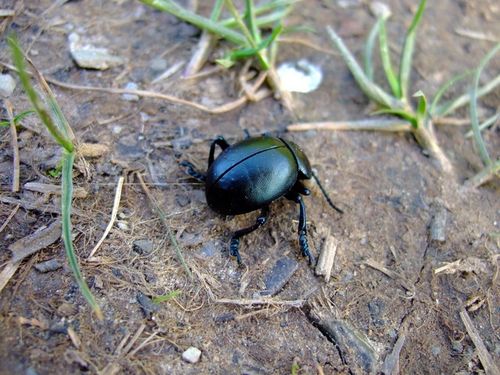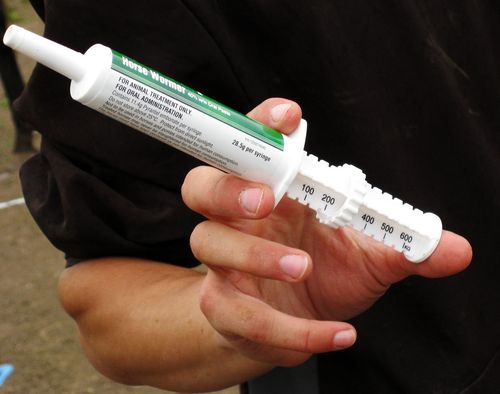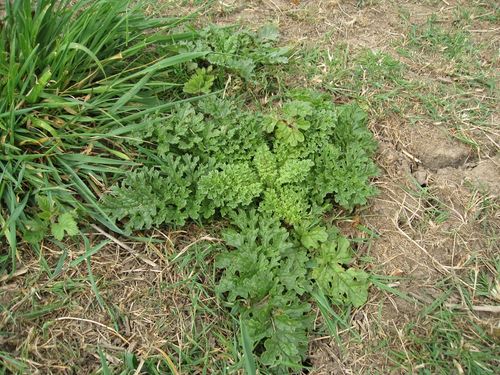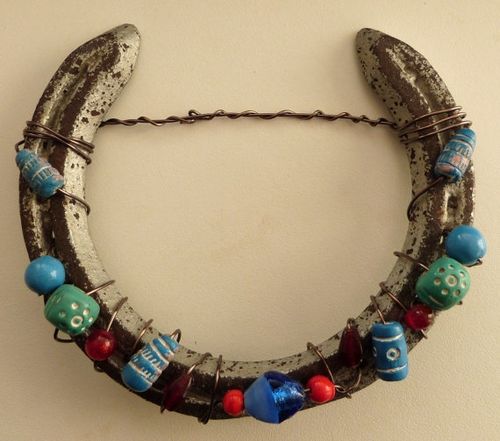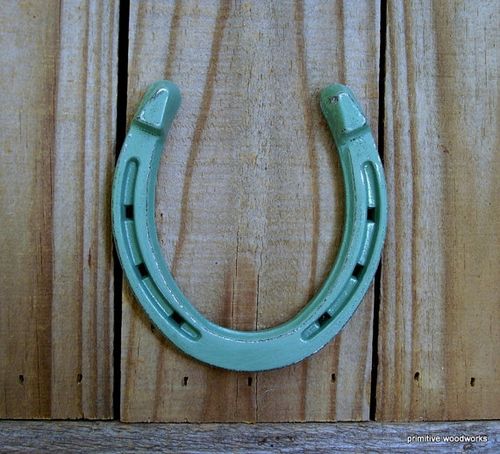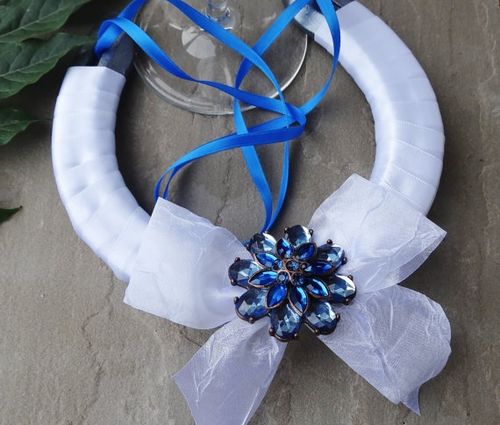Recycled baling twine haynet ~ recycle, reuse!
Green Horsekeeping
An expanding resource where horse owners and equestrians can find sustainable, environmentally friendly green horse keeping ideas to help reduce their carbon "hoof" print
Video how to make a haynet from recycled baling twine
Recycled baling twine haynet ~ recycle, reuse!
Reblog
(0)
|
|
 |
|
Injurious weeds - 5 weeds as classified under the Weeds Act 1959
Five weeds are classified as Injurious weeds under the UK Weeds Act 1959:
1. Common ragwort (Senecio jacobaea)
2. Spear thistle (Cirsium vulgare)
3. Creeping or field thistle (Cirsium arvense)
4. Broad-leaved dock (Rumex obtusifolius)
5. Curled dock (Rumex Crispus)
Although it is not an offence to have these weeds growing on your land they must not be allowed to spread to agricultural land, in particular land used for grazing areas or the production of forage, and you may be subject to an Enforcement notice requiring you to take action to prevent the spread of these weeds.
Reblog
(0)
|
|
 |
|
Dung Beetles for Horse Manure Control
Dung Beetles are brilliant recyclers who perform a vital clean-up role. Dung Beetles eat dung, they feed on faeces, they move it around, they bury it, they lay their eggs in it and they live in it.
"Without dung beetles, we would be up to our necks in dung."
Dung Beetles breakdown dung and recycle nutrients back into the soil improving soil structure and fertility. By removing dung they reduce the number of breeding sites for flies and other pests.
It's said that in some parts of Texas, USA the Dung Beetle is responsible for the removal of 80% of cattle manure.
Reblog
(0)
|
|
 |
|
Sometimes it's easy being green - storage and disposal of equine veterinary products
To avoid the possibility of harmful effects to you, your horse, other people, your property and the environment it is important that equine veterinary products are stored, used and, when finished with, disposed of correctly.
The correct methods for storage, usage and disposal will be written on the product label and / or on the instruction leaflet so make sure you read the labels and follow guidelines.
If you have any doubts about what to do with a product ask your vet or supplier or contact the distributer or manufacturer directly.
Image: copyright My Equestrian World
Reblog
(0)
|
|
 |
|
How to prevent weeds from entering your equestrian property ~ 9 tips to prevent the spread of weeds
As well as some weed species being toxic to horses, such as the ragwort pictured above, weeds in your pasture take the place of edible pasture plants reducing the amount of vegetation your horse can graze on. So here are 8 tips to help prevent weeds entering your property in the first place:
- Don't buy hay that you know has weeds in it, always try to buy weed free hay.
- Quarantine new horses: Although most weeds don't enter properties via horses it is possible for weed seeds to be present in horse dung. Quarantining horses new to your yard is a sensible precaution to prevent the spread of infectious disease but it can also prevent the spread of pernicious weeds!
- Pick out hooves : Weed seeds can be picked up and spread via the hoof.
- Hard surface car parking may help prevent human visitors from inadvertedly spreading weed seeds to your property via the soles of their footwear.
- Weeds can also be spread by contractors employed to cut your hay, if you're concerned that they may have been cutting weed infested hay prior to coming to your property you will need to talk to the contractor with regard to the machinery being cleaned before use.
- Most weed seeds are spread by wind so weeds on neighboring properties could spread to yours. Concerns about "injurious" weeds which are covered by the 1959 Weed Act should in the first instance be voiced to your neighbour, ask if they will remove them. If necessary you could ask for permission to remove them yourself. If this fails you can report the matter to Defra using the following complaint form on the DEFRA website: Weeds Act 1959 Complaint Forms they will then access the risk and decide if it is necessary to issue the landowner with an order to remove the weeds.
- If you spread manure on your pastures you could be spreading weed seeds, make sure it has been thoroughly composted at the correct temperature to kill off dormant weed seeds.
- Practice good pasture management, over grazing will result in weeds taking over from the grass.
- Finally remember to actively manage existing weeds on your own property so they don't seed and spread.
Reblog
(0)
|
|
 |
|
Can you house a mouser cat to help keep the rodent population of your stable yard down?
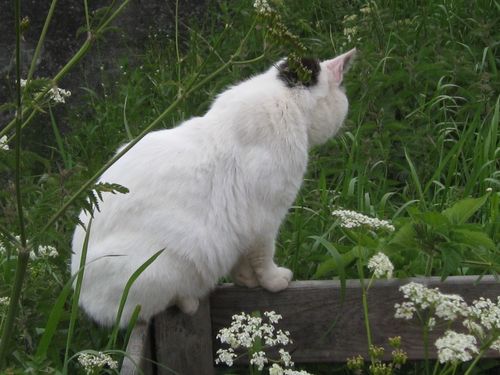
Cats Protection usually have some cats unsuited to family life in need of homes, here's what they have to say:
A pair of feral cats can provide a very efficient and environmentally-friendly alternative to chemical pest control. Garden centres, golf clubs, smallholdings, farms, stables, shops; in fact, anywhere where there is room to roam and rodents to catch, can provide working cats with a suitable environment in which to live and work.
Colonies of feral cats often find themselves homeless, usually as a result of inner city and rural development. But their useful predatory skills, coupled with Cats Protection’s rehoming services, can secure them a better future, according to Lindsay Tempest, Cats Protection’s Downham Market Adoption Centre Manager.
She said: “Most feral cats prefer the freedom of a working life to a comfortable lap in suburbia. We have had some very positive feedback in terms of reduced rodent problems from the many farms, stables and warehouses that have adopted a feral or two from us.”
Owners must be prepared to provide their feline employees with food, water, some shelter and veterinary care when needed. Contrary to popular belief, regular food and neutering will not affect a feral cat’s desire to catch prey.
Numbers of ferals can increase rapidly if left unchecked and the animals can suffer through a lack of proper care. Given the charity’s commitment to neutering as the practical way to control the UK cat population, Cats Protection’s national network of Branches and Adoption Centres have been active in responsible feral cat management programmes for many years, developing considerable expertise in this area.
Whilst feral kittens aged up to 12 weeks can be successfully ‘socialised’ and rehomed in a normal home environment, this is not usually possible with adult ferals. Once they have been neutered, volunteers return them to their colony, where a sustainable one exists, or find them a new home in a suitable environment where they can thrive and work hard doing what they like best.
If you can offer a feral cat a home please contact Cat's Protection, click here to find your nearest adoption centre
Reblog
(0)
|
|
 |
|
What to do with old horseshoes ~ some "crafty" ideas for recyclying those used horseshoes
So what do you do with those used horseshoes?
Some folk come up with arty ways of decorating them and then make a few extra pounds / dollars by selling them via places like Etsy. Take a look at these
Lucy Deane of Moki Trading Post takes old horseshoes and gives them a new lease of life by beading, some she paints first others are left rusty. She also makes fab primitive horse model dolls which can be found in her Etsy shop, MokiTradingPost.
Pam Johnson of Primitive Woodworks give their horseshoes a coat of primer then a top coat of satin paint and slightly distress. Pam is pretty inspiring as she is a breat cancer survivor who just turne 60. She also makes wonderful bird nest boxes and sells vintage on Etsy. You can find her shops by clicking Primitive Woodworks and I'm Doggone Vintage.
Sue of ImogenRoseDesigns started recycling and decorating horseshoes when she couldn't find one she wanted for her brother's wedding in 2011. She wanted something personal and unique. Sue's sister in law loved hers so much and other people started to ask her to design them for friends and relatives and a business ImogenRoseDesigns was born. Sue is happy to make these original, beautiful and unique horseshoes to your specifications for that someone specials wedding, anniversary, birthday, christening, new baby etc… Sue can be contacted via her shop ImogenRoseDesigns
Reblog
(0)
|
|
 |
|
What to do with pony poo? Make ponypoopaper
With an expected output of up to 9 tons of manure a year per horse it's good/ necessary to find something to do with it. One woman, Sue Eberle, came up with a rather more novel idea than muck spreading.
She turns pony poo into paper!
Apparently Sue started by washing the waste from the poo to collect the fine bits of leftover roughage which she then dried in her tumble dryer, she says , "The finished ‘product’ smelt of hay instead of what you would expect!" It then heads of to the paper mill to be made into ponypoo wrapping paper, you can watch the process in the above video. You can find out more about pony poo paper by visiting Sue's website ponypoopaper.com
So another success story for an environmentally friendly way of recycling that muck heap, you can read more about horse manure by clicking the following links:
More about manure:
Well rotted horse manure raising funds for horse charity
Your muck heap problem could be turned into a thrivingbusiness
Using composted horse bedding as stable beddingBurning manure
Build a 3 Bin Compost System from pallets to compost your horse manure
Reblog
(0)
|
|
 |
|
Going Green - STOP buying bottled water
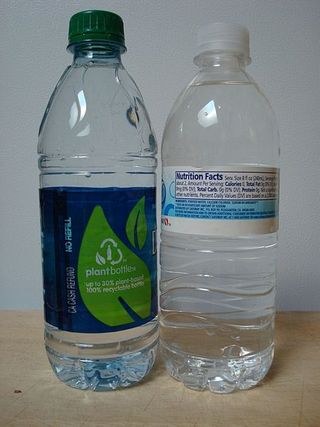
Here's one simple thing that every equestrian can do to "go green" ~ STOP buying bottled water.
Of course you want to take a drink to the yard, it's important that you avoid dehydration but many of those empty water bottles will end up in landfill. eg in the USA an estimated 86% of used plastic water bottles end up in landfills.
They'll take around 700 years to decompose during which time the plastic gradually leaches chemicals that can alter homones.
There's a simple solution - BYOB Bring Your Own (refillable) Bottle, you could refill it from a tap at the yard. Not only will you be reducing waste and improving the environment you'll also save yourself loads of money.
Image: Epipowell licensed under the Creative Commons Attribution-Share Alike 3.0
Reblog
(0)
|
|
 |
|
Well rotted horse manure raising funds for horse charity
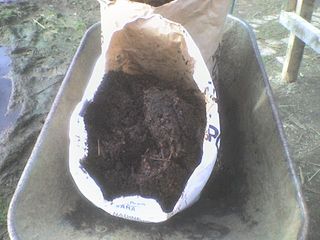
The Shetland Pony Welfare Trust sell well rotted manure / compost which is ready for garden use and they'll deliver it for you in bio-degradable sacks if you live in the Cambridge area.
All funds raised from the sale of the manure compost go directly to The Shetland Pony Welfare Trust to support the ponies in their care.
To place an order or get more information please click here
They also sell Super Compost Tea
THE SHETLAND PONY WELFARE TRUST IS A SMALL REGISTERED CHARITY BASED IN CAMBRIDGESHIRE
THE AIMS OF THE CHARITY
To relieve the suffering of Shetland ponies and their sometimes much larger companions in need of care and attention.
To relieve the suffering of Shetland and Shetland type ponies in need of care and protection whose owners have become ill, are in hospital have died or are no longer able to look after them in particular by providing temporary or long term shelter for such animals
To rehabilitate and re-home ponies wherever possible on a foster care basis
To educate the public in all matters relating to particularly but not exclusively, the breeding,history,care and ownership of Shetland type ponies.
Find out more about them by visiting www.theshetlandponywelfaretrust.co.uk
More about manure:
Your muck heap problem could be turned into a thrivingbusiness
Using composted horse bedding as stable beddingBurning manure
Build a 3 Bin Compost System from pallets to compost your horse manure
Reblog
(0)
|
|
 |
|
Popular destinations
- Casino Not On Gamstop
- Casinos Not On Gamstop
- Casino Sites Not On Gamstop
- Casino Sites Not On Gamstop
- Gambling Sites Not On Gamstop
- Casino Online Stranieri Non Aams
- Non Gamstop Casino
- Sites Not On Gamstop
- Slots Not On Gamstop
- オンラインカジノ 日本
- Casino Not On Gamstop
- Online Casino Sites UK
- Casino Sites Not On Gamstop
- Casino En Ligne Fiable
- Beste Online Casinos
- Non Gamstop Casino UK
- Casino Sites Not On Gamstop
- UK Betting Sites
- Non Gamstop Casino UK
- UK Casino Sites Not On Gamstop
- Casinos Not On Gamstop
- Uk Sports Betting Sites Not On Gamstop
- Casino Sites Not On Gamstop
- Migliori Bonus Casino Online
- Crypto Casino
- Meilleur Site Casino En Ligne Belgique
- Meilleur Site Casino En Ligne Belgique
- Siti Scommesse Non Aams Sicuri
- Meilleur Site De Paris Sportif International
- 온라인홀덤사이트
- все казино онлайн
- Meilleur Casino En Ligne
- Casino Online Migliori
- Meilleur Site Casino En Ligne Belgique
- Casino En Ligne Français
- Meilleure Casino En Ligne
